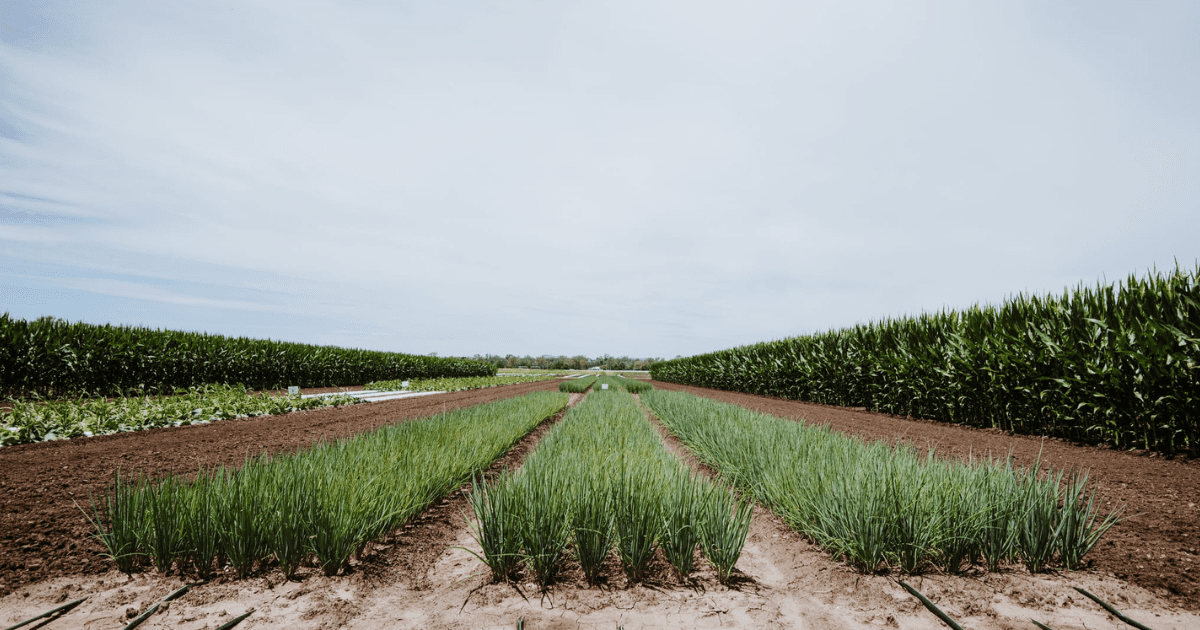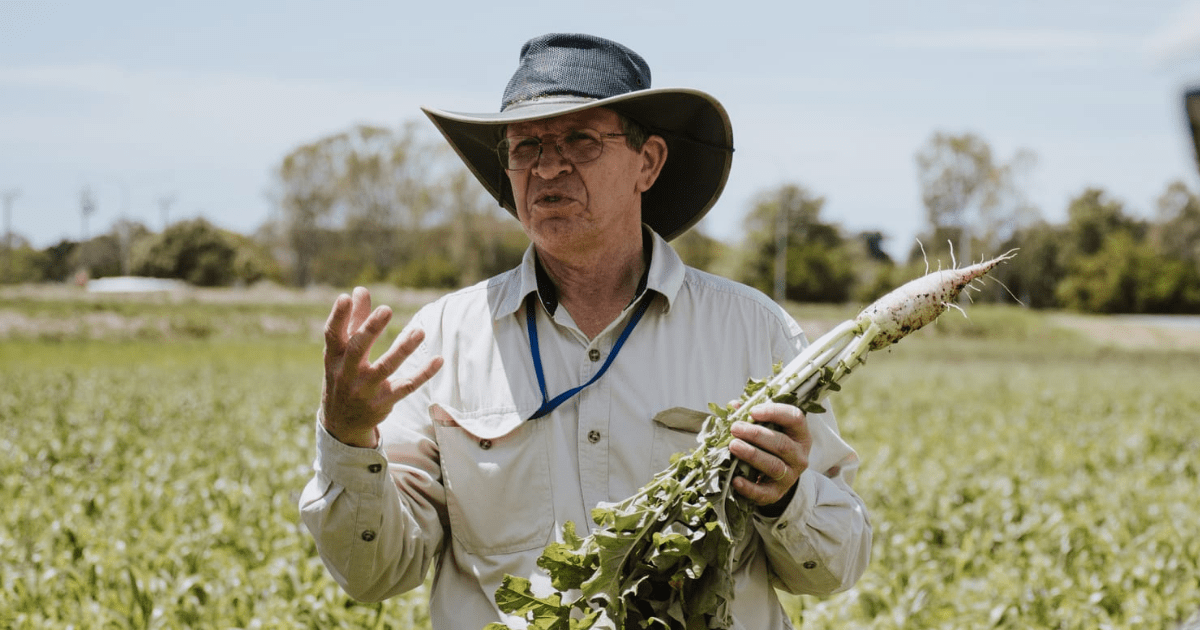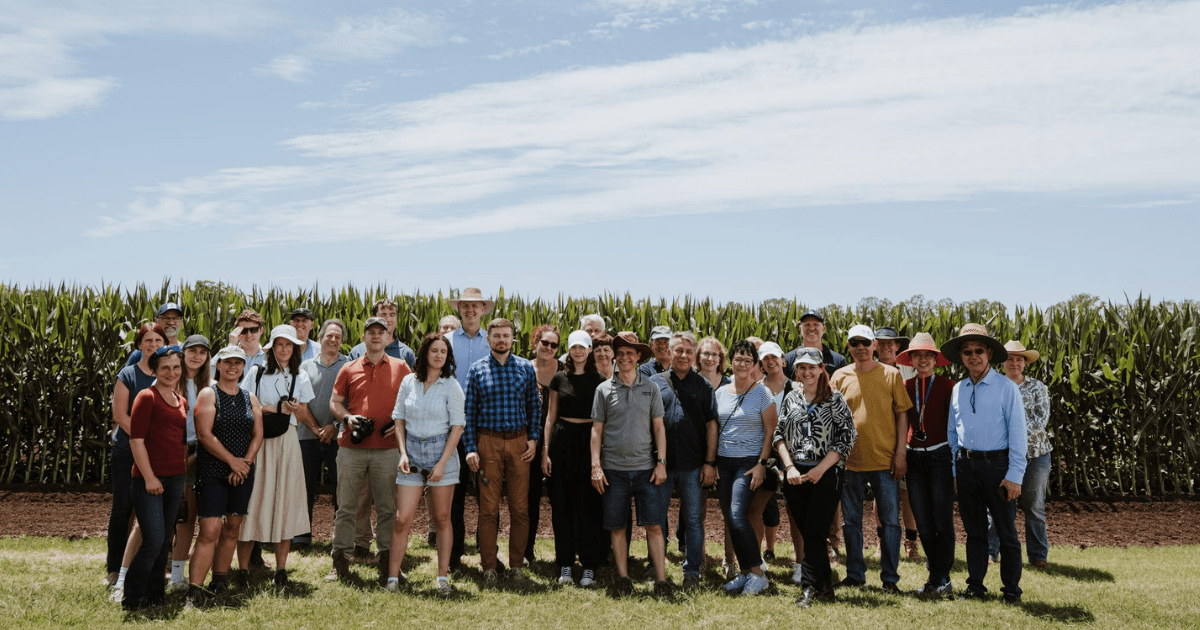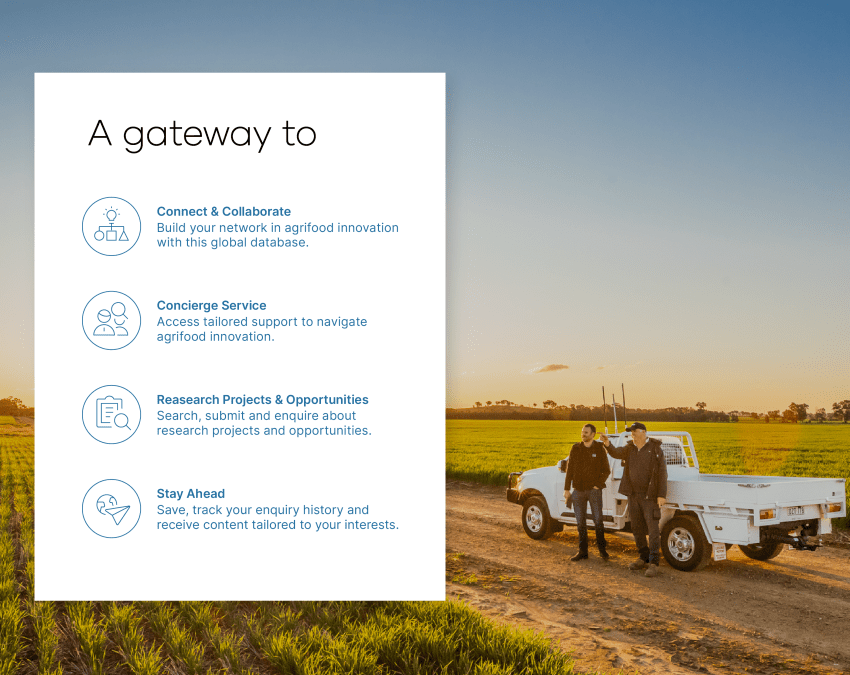
Agri Energy partnership opportunity: Germany-Australia collaborative programs gain traction
A collaborative network led by T+I in Germany and UQ in Queensland can support Australian industry and researchers in finding German partners and secure funding under ZIM, Germany’s largest innovation program for small to medium size enterprises (SMEs). ZIM funds German collaborations with public and private non-profit research and technology organisations (RTOs) to develop new or significantly improve existing products, processes or technical services.
-crop-1185x680.png)
- Share via Facebook: Agri Energy partnership opportunity: Germany-Australia collaborative programs gain traction
- Share via LinkedIn: Agri Energy partnership opportunity: Germany-Australia collaborative programs gain traction
- Share via Twitter: Agri Energy partnership opportunity: Germany-Australia collaborative programs gain traction
- Share via E-mail: Agri Energy partnership opportunity: Germany-Australia collaborative programs gain traction
Related tags
The University of Queensland teams up with Germany’s T+I Consult to collaborate on global innovation
It was a chance conversation in 2017 between The University of Queensland’s (UQ) Dr Juliane Wolf and Professor Michael Gross from T+I Consult GmbH (T+I) in Berlin that sparked the collaboration between German SMEs and their Australian counterparts to scale tech solutions.
“I came to Australia for a PhD project but my idea was always to connect a lot of fundamental research here with the applied research of my home country of Germany, so I discussed this with Michael, who had worked for 20 years in the German venture capital industry before joining T+I,” recalled Juliane, a UQ Research Fellow in Algae Biotechnology at the Institute for Molecular Bioscience.
“In Germany there’s a lot of value in SME companies. They’re the basis for the economy and very diverse, so they’re quite resilient against stress factors. I wanted to adopt that model and bring them here to partner in research models with Australian SMEs and institutions.”
Opportunity to partner with T+I on an international innovation network ‘Agri Energy’.

ZIM innovation program funds market-oriented collaborations
Germany’s largest innovation program for SMEs, ZIM, is funded by the Federal Ministry for Economic Affairs and Climate Action and launches several thousand new projects each year.
Michael says T+I successfully proposed a change to ZIM to enable international collaboration between networks in Germany and Australia who want to develop new or significantly improve existing products, processes or technical services.
“Public and private non-profit research and technology organisations (RTOs) acting as a cooperation partner of an SME are eligible for ZIM funding. The programme is open to all sectors and funded projects must be highly innovative, market-oriented and entail a substantial technological risk,” said Michael.
Related: From Queensland to Germany: A global partnership to drive bioeconomy innovation - growAG.

Two countries ‘speak the same language’
Australia and Germany offer different solutions to suit different environments, Professor Gross says, but they speak the same language.
“Australia has a great community of highly qualified scientific partners, but companies are either small or large without much in the middle. The smaller companies are very innovative and interested to grow within the framework of a partnership,” he said.
In 2021, T+I utilised growAG. to identify suitable universities, research institutions, startups and Research and Development Corporations that may be potential partners for their drone (Omniborne Systems) and Food Systems ZIM networks. This led to a number of Australia organisations signing collaboration agreements that made them preferred partners to deliver research projects over coming years.
“Australia also has a lot of highly qualified farming enterprises and this is the next group we’re looking to engage with, so through AgriFutures growAG. we’re seeking partners that are interested to deliver innovation and receive information about the quality of products, technical problems etc”.
Opportunity with T+I: International innovation network Agri Energy – partnership opportunity.

Collaborations translate research faster
Juliane says collaborations between Germany’s expanding international SMEs and research networks reduces innovation barriers such as low personnel capacity for innovation management, low market recognition, or excessive technical risks, and creates a strategic global footprint and bioeconomy network that can deliver significant impact.
For universities, it’s a quicker process to translate research if they work with SMEs, she said.
“We can choose diverse companies for the various products that we’re developing and in turn, they tell us what the market needs.
“We aim to create diversity in project collaborations, so that partners come together and innovate through brainstorming, synergies emerge and everyone benefits from new knowledge.”
Opportunities to develop new solutions for water and energy
Michael says T+I sees opportunities to develop a new generation of greenhouses combined with artificial intelligence (AI) in Australia, to develop advanced algorithms for water control management that integrates new methods, technology and devices and a well-managed data system for sustainable food production.
“Agriculture needs to connect with energy systems and we are preparing the next international network on agri energy, orientated to research and development projects and solutions for producers such as solar systems, biogas and hydrogen.
“We need new solutions for farmers to produce and use energy, no matter what size or shape they are, then we can export these solutions into other countries.
“We’ll work with AgriFutures growAG. to put together a list of planned projects. They can bring it to partners in Australia and T+I can identify partners in Germany, then look at opportunities to finance them.”
Michael says advances in agtech globally are attracting new funding.
“Ten years ago it was hard to find businesses to fund agtech but now we have a lot of interested investors. And in economic terms, this collaboration opens a window for European countries to come into the Asia Pacific region.
“Australia has a big advantage in that it’s open for innovation.”
Researchers, startups, SMEs, and farmers interested in being involved in agri energy should check out T+I Consult’s opportunity on growᴬᴳ⋅
Related highlights
Explore all highlights-crop-770x475.png)
AgTech and Logistics Hub’s industry-led approach accelerates innovation
-
Led by
AgTech and Logistics Hub
-crop-850x675.png)
Looking for engagement?
Showcase your commercialisation opportunity today.
Talk to our team to discuss how growAG. can connect your innovation to industry.
Have questions? Find answers to our most frequently asked questions on research projects, commercial opportunities, organisations and more.


-crop-770x475.png)
-crop-770x475.png)
-crop-770x475.png)